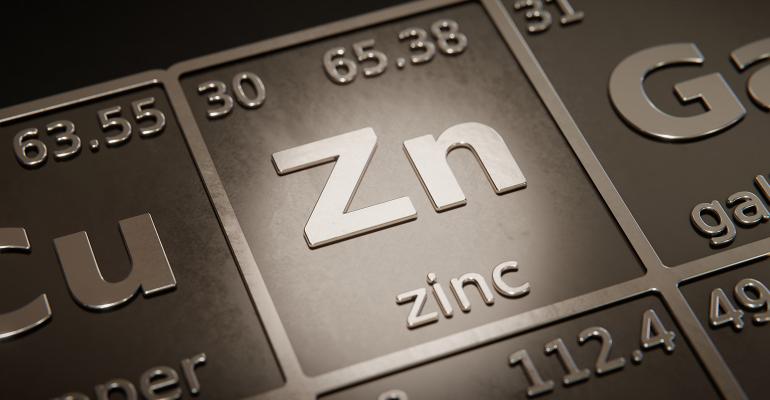Enzinc CEO: Zinc-Based Batteries are ‘Better, From the Ground Up’
Enzinc CEO Michael Burz discusses solving the dendrite problem, repurposing lead-acid battery plants, and scaling a sustainable energy storage solution.

In a recent interview with Battery Technology, Michael Burz, the CEO of Enzinc, shared insights into the groundbreaking technology that could reshape the energy storage industry. Enzinc—a company specializing in zinc-based batteries—has been gaining recognition for its innovative approach to addressing the battery industry's challenges. Here's a detailed look at the interview and the key takeaways.
Recognition and impact on the industry
Enzinc received the Coup de Coeur Start Up Award at the World Materials Forum. Burz explained that this recognition profoundly impacts Enzinc's visibility and potential to create new opportunities within the energy storage sector. It signifies the industry's hunger for safer and more powerful batteries while recognizing Enzinc's innovative approach.
Rather than making marginal improvements to existing battery technologies, they have taken a bold approach to harness zinc's potential, a low-cost, abundant mineral. Burz said, “We aren’t making marginal improvements to existing batteries. We are building a better battery from the ground up. Enzinc is poised to meet the escalating demand for battery storage, particularly in regions where current solutions encounter substantial hurdles.”
Addressing industry challenges
One of the most significant challenges in the battery industry is the reliance on materials with limited availability. Burz explains that while lithium-ion batteries have dominated the market, their dependence on lithium, a material with restricted global reserves and processing primarily controlled by China, poses national security risks. Zinc, on the other hand, offers a promising alternative. It's abundant, widely distributed, and cost-effective.
Burz explained, “Historically, zinc was relegated to disposable batteries because it formed dendrites, damaging stalactite-like needles that cut batteries’ lives when they were repeatedly recharged.” However, according to Burz, Enzinc tackled this issue head-on with a microsponge structure, massively increasing the surface area of the zinc anode. This innovation addressed the problem and led to a significantly higher energy density, making zinc batteries a viable solution for contemporary applications.
Go-to-market approach and safety considerations
Enzinc's approach to entering the market aims to adapt existing factories to produce premium batteries with Enzinc technology. This strategy significantly contributes to scalability and accessibility, as it harnesses the manufacturing capabilities of legacy battery factories, which currently exceed 400 GWh. Burz highlighted, “Our goal is to unleash the sleeping giant that is lead-acid battery factories and turn them into powerhouses for clean energy storage production.”
Denis_prof/iStock / Getty Images Plus
3D rendering of lead-acid battery.
According to Burz, by transforming these factories to produce nickel-zinc batteries using Enzinc's technology, they could triple their capacity to over a terawatt. Manufacturers can convert part or all of their factories. They can use the same enclosure and assembly equipment and streamline the transition process. Burz explained, “Battery manufacturers will convert part or all of their factories to make nickel-zinc batteries, replacing their electrodes with our zinc anode and a nickel cathode and using a potassium hydroxide (a base) electrolyte instead of sulphuric acid.”
Safety is paramount in the battery industry, particularly in densely populated urban areas. Lithium-ion batteries have been known to cause fires, raising significant safety concerns. Burz highlighted that Enzinc's zinc-based batteries offer inherent safety advantages. They use a non-flammable water-based electrolyte, which means there are no fire risks, no toxic outgassing, and enhanced durability. Burz said, “This means no fires, no toxic outgassing, and enhanced durability, making them a no-brainer not only in densely populated urban areas like New York City but also in any application where fire safety is paramount.”
The future of zinc-based batteries
When asked about the future of zinc-based batteries, Burz painted a promising picture. He noted that Enzinc's zinc anode is cathode-agnostic, meaning they can pair it with various cathodes to meet different market needs. Whether it's manganese cathodes for affordability or carbon cathodes for high performance, Enzinc's technology is versatile.
Burz concluded, “With the ability to bridge the gap between existing battery technologies, zinc batteries are set to revolutionize the way we harness and store energy, paving the way for a more sustainable and efficient future.”
About the Author(s)
You May Also Like





